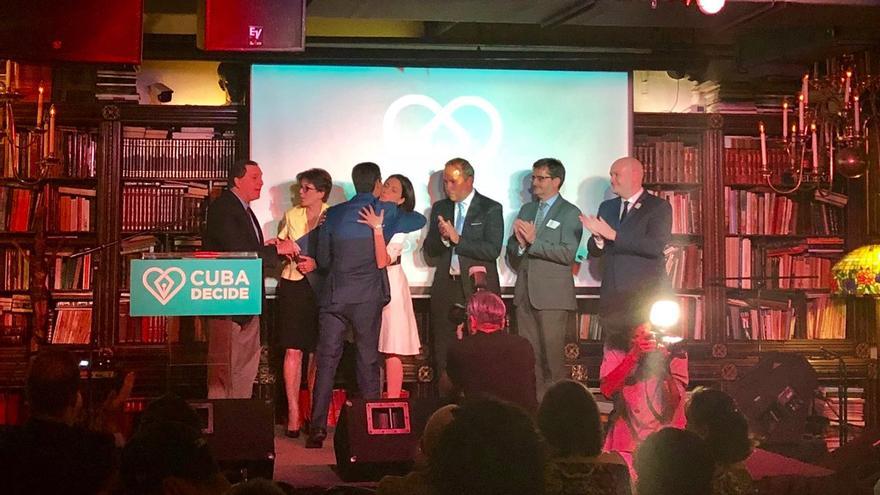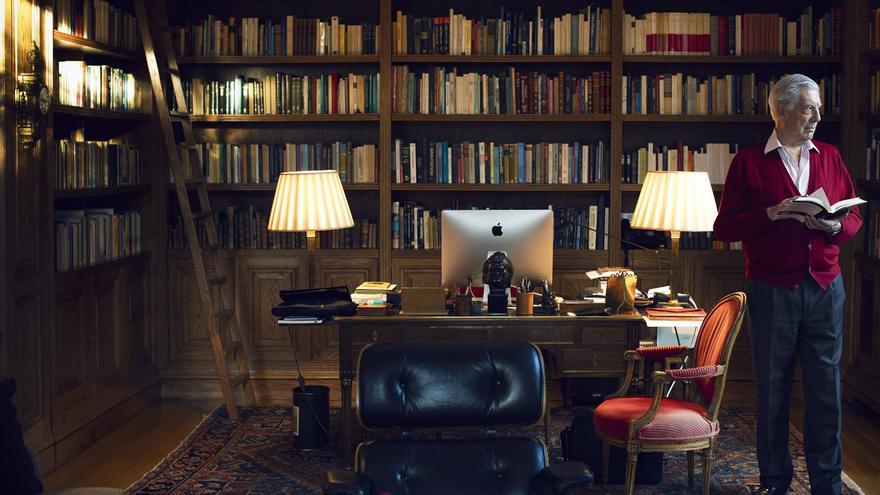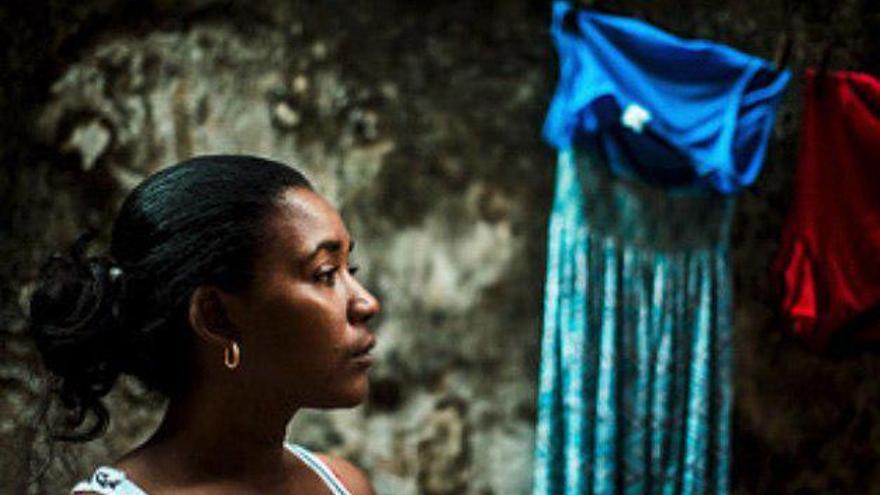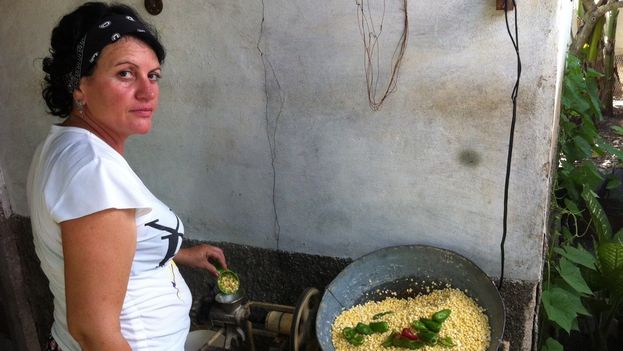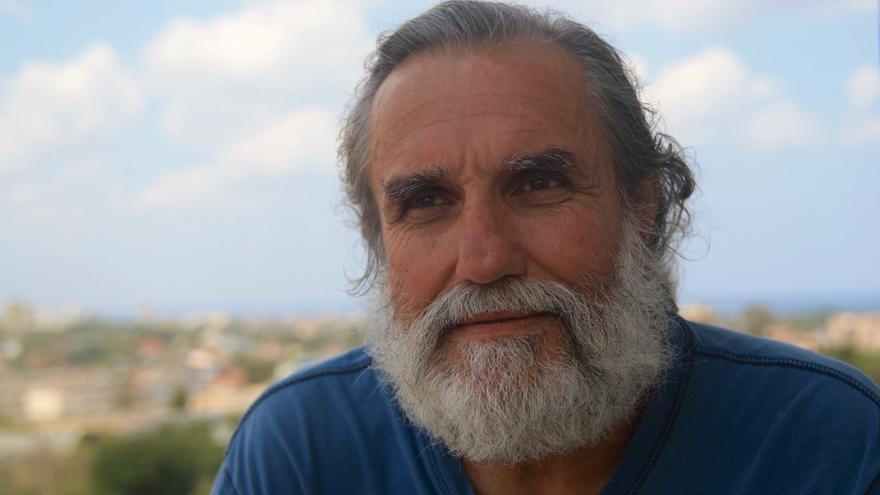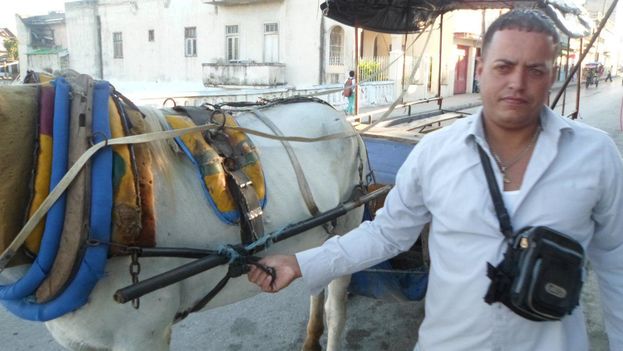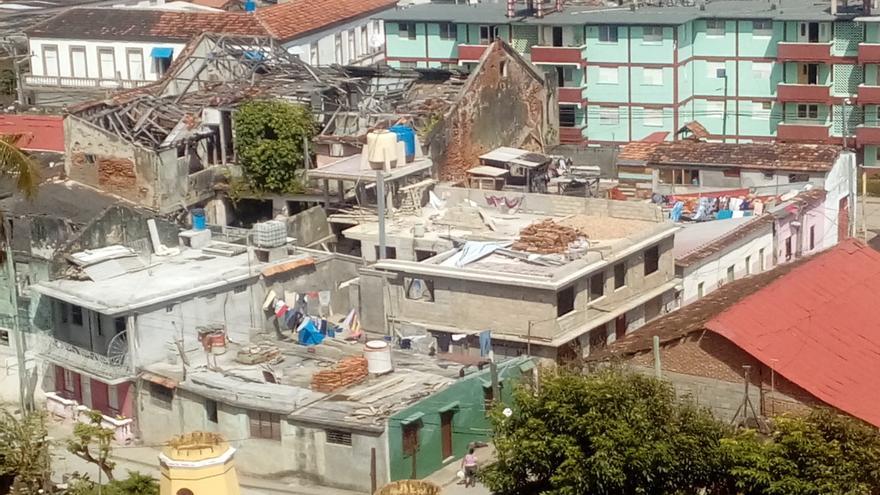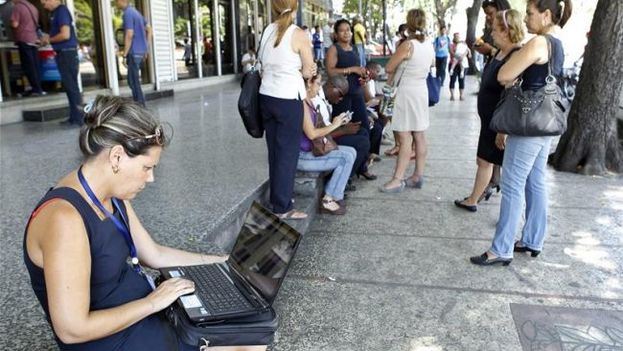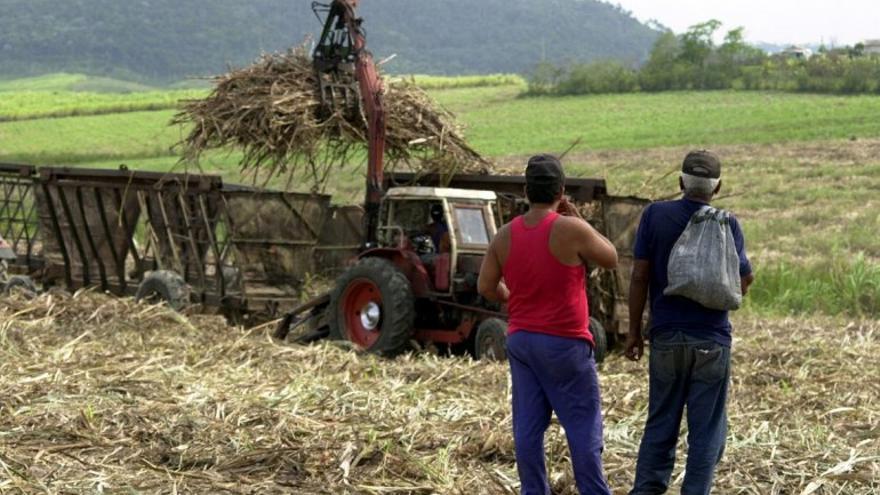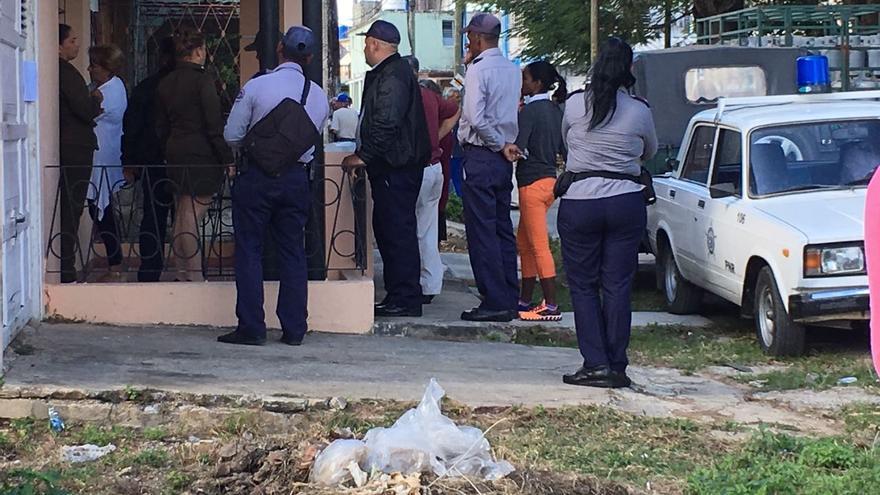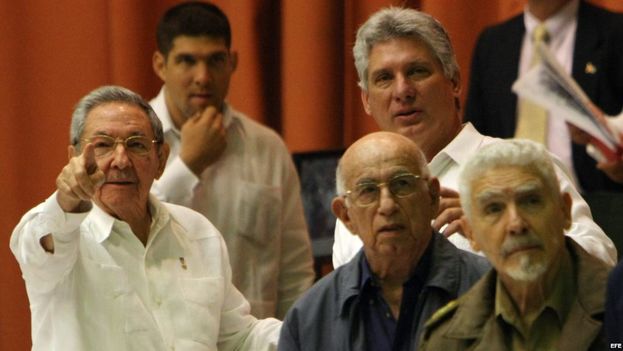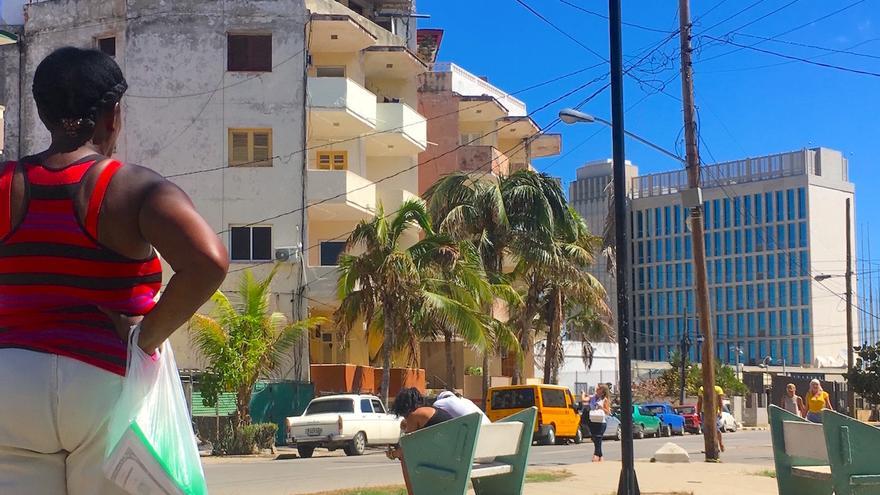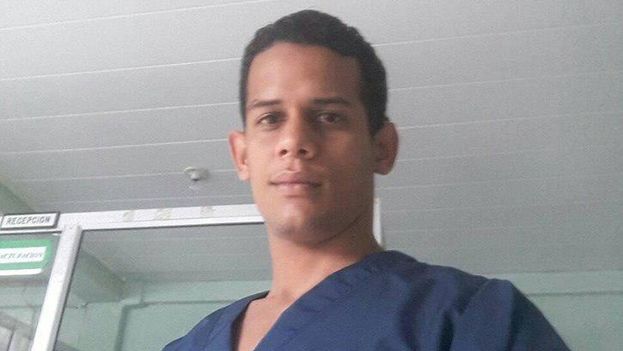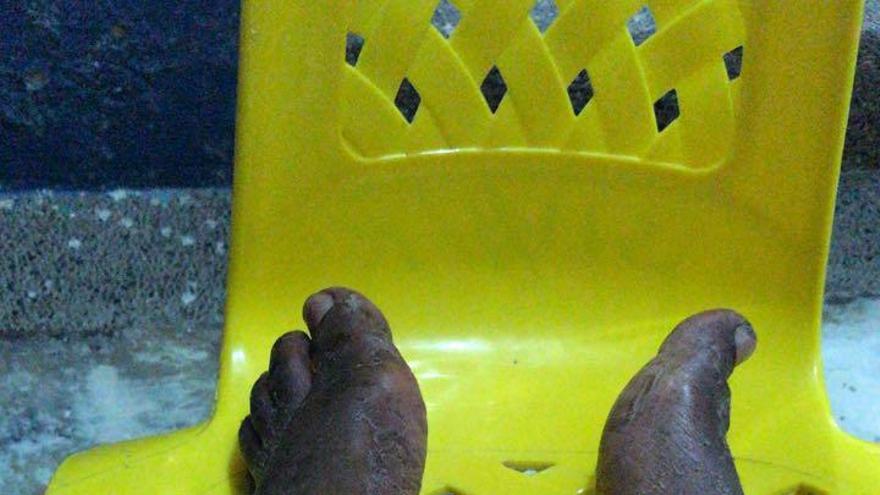In a recently published essay, “The Call of the Tribe” (Alfaguara), he argues in favor of liberalism, citing the work of seven authors who influenced him and to whom he pays homage: Adam Smith, José Ortega y Gasset, Friedrich von Hayek, Karl Popper, Raymond Aron, Isaiah Berlin and Jean-François Revel. They represent a school of thought that champions the individual as a sovereign, responsible being and freedom as the supreme value; that defends democracy and the separation of powers as the system that best reconciles the contradictory values of society; that rejects the tribalism that gave rise fascism, communism, nationalism and religious fanaticism.
And perhaps that is why, says the writer, he has been “the most vilified and maligned political target in history.” The Call of the Tribe is also a kind of intellectual autobiography of Vargas Llosa himself, of his evolution from Marxism and existentialism to a reevaluation of democracy and the discovery of liberalism.
Authors who are also analysts share common traits, among them is that they swim against the current. Even two books by Hayek and Ortega were banned. Is a liberal condemned to be a lonely long-distance runner? Liberalism not only admits but stimulates divergence. It recognizes that a society is composed of very different human beings and that it is important to preserve that. It is the only doctrine that accepts the possibility of error. That is why I often insist that it is not an ideology. An ideology is a secular religion. Liberalism defends certain basic ideas: freedom, individualism, the rejection of collectivism and nationalism. In other words, all the ideologies or doctrines that limit or preclude freedom in public life.
Rico: Speaking of nationalism, that once again brings up the subject Ortega y Gassett and his warnings about dangers of nationalism in Catalonia and the Basque country. Why do liberals reject nationalism?
Varga Llosa: Because it is incompatible with freedom. When you dig a little below the surface, you discover nationalism represents a form of racism. If you think that belonging to a certain country or nation or race or religion is a privilege, a value in itself, you think you are superior to others. And racism inevitably leads to violence and the suppression of freedom. That is why, since the time of Adam Smith, liberalism has seen nationalism as a form of collectivism, a renunciation of reason by an act of faith.
Rico: Populism, the resurgence of nationalism, Brexit… is the tribal spirit being reborn?
Varga Llosa: There is a tendency to oppose what I believe to be the most progressive idea of our time, which is the formation of large groups that are slowing slowly erasing borders and integrating different languages, customs, beliefs. This is the case in Europe. It causes a lot of insecurity and a lot of uncertainty. There is the strong temptation to return to that tribe, to that small, homogeneous society that never really existed, where everyone is equal, where everyone has the same beliefs, the same language…
It is a myth that provides a great sense of security, which explains outbreaks such as Brexit, Catalan nationalism or the kinds of nationalism that wreak havoc in democracies like Poland, Hungary and even Holland. Nationalism exists in those places but my impression is that — as the case of Catalonia indicates — it is a minority movement. And the strength of democratic institutions will undermine it little by little until it is defeated. I am rather optimistic.
Rico: How do you fight against these trends intellectually and politically?
Vargas Llosa: You have to fight them without any sense of inferiority. And you have to say that nationalism is a retrograde, archaic movement, an enemy of democracy and freedom, that is propped up by historical fictions, by big lies which we now call post-truths. Catalonia is one flagrant example.
Rico: Your evolution from Marxism to liberalism is not uncommon. In fact, it is the same path that other notable authors like Popper, Aron and Revel have followed.
Vargas Llosa: My generation in Latin America came of age on a continent of horrendous inequality, governed by military dictatorships supported by the United States. For a young Latin American with a certain uneasiness, it was easy to reject that particular caricature of democracy — Chile, Uruguay and Costa Rica being the exceptions.
I wanted to be a communist because, to me, communism represented the polar opposite of military dictatorship, of corruption and especially of inequality. So I went to San Marcos — a national, public university — with the notion that there must be communists there with whom I could connect. And basically that’s what I did.
At that time communism in Latin America was Stalinism, pure and simple, with party branches that answered to the Comintern in Moscow. They shielded me from Sartre’s sectarianism and existentialism. I had discussions in my party cell all the time but I was only a member for a year. But I remained a socialist in a vague sort of way and defended the Cuban revolution, which at first seemed like a different kind of socialism, not a dogmatic one.
It excited me. I traveled to Cuba five times in the 1960s. But little by little I became disenchanted, especially after the creation of the UMAPs [Military Units of Production Assistance]. There were roundups of young people whom I knew. It was traumatic. And I remember writing a private letter to Fidel telling him I was bewildered. How could Cuba, which seemed to have an open and tolerant form of socialism, throw so-called “worms” and homosexuals into concentration camps along with common criminals?
Fidel invited me and about ten other intellectuals over to have a conversation with him. We spent the whole night together — twelve hours, from eight in the evening to eight in the morning — basically listening to him talk. It was very impressive but not very convincing. From then on I began to have a somewhat wary attitude.
The final break came with the Padilla case [the trial of the writer Heberto Padilla, who was jailed in 1971 and forced to make a wrenching, public self-critique, that marked the end of the charmed relationship between prominent intellectuals and the Cuban regime]. By reading, I began a rather long, difficult process of reconciling with democracy and little by little accepting liberal doctrine. And I was lucky to live in England during the era of Margaret Thatcher.
Rico: You portray Thatcher as an intelligent, brave woman of deep convictions. This contrasts with the widely held image of her.
Vargas Llosa: It is an utterly unfair caricature. When I arrived, England was a country in the midst of decline. It was country with freedom but without nerve, which was gradually being extinguished by the rising economic nationalism of the Labor Party. Margaret Thatcher’s revolution reawakened Britain.
They were difficult times: ending unnecessary labor union jobs, creating a free market society, building a meritocracy and defending democracy with conviction and confidence by confronting socialism as represented by China and the Soviet Union, which were the most cruel dictatorships in history.
For me they were definitive years because I began to read Hayek and Popper, who were authors Thatcher used to cite. She said [Popper’s] The Open Society and Its Enemies was a one of the most important books of the twentieth century. The contribution of Thatcher and Ronald Reagan to the culture of freedom, to the fall of the Soviet Union, which posed the greatest challenge to the culture of democracy, is a reality that unfortunately has been obscured by a campaign of the left, whose achievements are very meager.
Rico: And what is the main challenge for western democracy today?
Vargas Llosa: The main enemy today is populism. No moderately sane person wants a system like that of North Korea or Cuba or Venezuela for his country. In politics, Marxism has already been politically marginalized, but not so populism, which corrupts democracies from within. It is much more insidious than an ideology. It is a practice to which, unfortunately, weak democracies, first-time democracies, are very prone.
Rico: The banking crisis of 2008 and growing inequality have revived criticisms of liberal doctrine, which some years ago was rechristened “neo-liberalism.”
Vargas Llosa: I don’t know what neo-liberalism is. It is a way to caricature liberalism, to portray it as a kind of ruthless capitalism. Liberalism is not dogmatic; it does not have the answer to everything. It has evolved since the time of Adam Smith because society is now so much more complex. Today there are injustices, such as discrimination against women, that were unknown in the past.
Rico: My understanding is that, among the different strands of liberalism, the main source of disagreement centers on how much importance should be given to the state.
Vargas Llosa: Yes, liberals want an effective but non-invasive state that guarantees freedom, equal opportunity — especially in education — and respect for the rule of law. But along with that basic consensus there are some disagreements. Isaiah Berlin says that economic freedom cannot be unrestricted because when it was unrestricted in the 19th century the coal mines were filled with children.
Hayek, in contrast, had such extraordinary faith in the market that he thought it would be able to solve every problem if it were left to operate freely. Berlin was much more of a realist. He thought, in effect, that the market is what brought about economic progress. But if progress meant creating huge inequalities, the very essence of democracy would be damaged and freedom would no longer work the same way for everyone.
Adam Smith, who is considered the father of liberalism, was also a very flexible man. Of course, there are distortions of liberalism. For example, I cite cases of completely closed-minded economists who were convinced that economic reform was the only thing that would ultimately bring about freedom.
I don’t agree. I believe that ideas are more important than economic reforms. Speaking of caricatures, or language traps, it is quite significant that the label “progressive” is used in Spain, for instance, by forces who defend the Cuban and Venezuelan dictatorships.
I believe that, unfortunately, intellectuals have contributed to the distortion of language. They have imbued Marxism and communism with an aura of prestige that seduces certain young people, just as they did before with Nazism and Fascism.
Intellectuals have shown a tremendous blindness in always viewing democracy as a mediocre system that does not possess the beauty or the consistency of the world’s great ideologies. Note that this blindness is not incompatible with intelligence.
Heidegger, for example, was perhaps the greatest philosopher of the modern age. How could he be a Nazi? The same thing happened with communism. It attracted writers and poets of the highest caliber who applauded the gulag. Sartre, the most intelligent French philosopher of the twentieth century, supported the Chinese Cultural Revolution.
Rico: Speaking of Sartre, his work has not aged well. He rationalized genocide, supported tyrants and lived with the Nazis while others, such as Albert Camus or André Malraux, were risking their lives in the Resistance. And later he devoted himself to teaching! Why is he still revered?
Vargas Llosa: Well, you know that, for me, he was very important during my adolescence.
Rico: That’s why I am asking you. You refer to him as a great intellectual. He was a man who… let’s just say that his political positions were always wrong.
Vargas Llosa: I think there is probably a very personal and perhaps overly psychological explanation, but he was not really a resister. He even agreed to replace a teacher who had been expelled from his position because he was a Jew. And although he belonged to a resistance group, he was really not very active in it. I think he could never escape that legacy and spent the rest of his life making efforts, some grotesque, to earn the labels progressive and revolutionary.
It was a need that was very widespread in that era. Intellectuals wanted to provide proof of human progress because that was what was expected of them. But then they turned out to be horribly wrong and ended up contributing to the aura of communism, as others had done previously with Nazism
In Latin America in the 1960s, if you were not a leftist intellectual, you were simply not an intellectual. There was no other option. Culture was controlled by a very sectarian, very dogmatic left, which profoundly distorted cultural life. I think that has changed considerably.
Rico: The same thing happened in Europe.
Vargas Llosa: Yes, that’s right. Although, when I lived in England, there were intellectuals ready to do battle, who faced off against each other and were not timid about it, and that helped me to be a lot more honest with myself.
Rico: Often the problem is one of intellectual honesty: elites who defend political systems they would never support.
Vargas Llosa: I believe that is the case. Bertrand Russell, for example, defended very noble causes and was an admirable person in many respects but at the same time he defended horrible things. He allowed himself to be manipulated by leftists who had no respect for his work or his ideas. They did not even read his books. How do you explain such a contradiction? Unfortunately, intelligence is no guarantee of intellectual honesty.
Isaiah Berlin, however, believed that it was impossible to separate intellectual and artistic greatness from ethical rectitude, that talent and virtue go together. No, that’s not true. If it were, we would not see such flagrant contradictions all around us. Heidegger would not have gone to his grave with a Nazi party membership card. Sartre would not have defended the Chinese Cultural Revolution or declared, as he did in 1946 upon his return from Moscow, “In the Soviet Union the freedom to criticize is absolute.” But that is not the case with any of the intellectuals that I mention in the book. They believe that morality is inseparable from politics. And you have to be willing to correct and learn from your mistakes. That’s what Popper insists on.
Rico: This debate has taken on new relevance.
For example, we are seeing in cinema how the work of artists accused of deplorable actions, such as [Roman] Polanski and Woody Allen, is condemned and ostracized (with or without evidence). And in literature, Gallimard has decided not to publish [Louis-Ferdinand] Céline’s anti-semitic pamphlets. These prohibitions are stupid.
Rico: Should the work of a scoundrel be respected?
Vargas Llosa: Not only should it be respected, it should be published. If you begin to judge literature by moral and ethic standards, literature would not only be very diminished, it would disappear. It would have no reason for being. Literature expresses what reality, for one reason or another, tries to hide. Nothing stimulates the critical spirit in a society like good literature, not to mention the beauty derived from the pleasure it brings you.
But literature and morality are at odds, they are enemies, and you have to respect literature if you believe in freedom. There are demonic writers, of course. There are many whom we read not to imitate but to learn from them. The Marquis de Sade was a man of many horrors. He wrote the most atrocious things and at the same time few writers have delved so deeply into the complexities of the human mind, into the world of desire and instinct.
Céline was clearly an awful man — a racist and a Nazi supporter. At the same time, he was one the greatest writers of modern times. I don’t believe France has produced a writer as original or as brilliant since Proust.
I have read his two greatest novels two or three times and they are absolute masterpieces. Within his pettiness, his very mediocre view of human beings, he expressed not only a certain reality of French society but of all societies, without exception.
Rico: Can political correctness threaten freedom?
Vargas Llosa: Political correctness is the enemy of freedom because it rejects honesty. Or, to put it another way, authenticity. You have to fight it as though it were the denigration of truth.
Rico: We have recently discovered fake news, as though it were something new. But in Useless Knowledge Jean-François Revel describes how in the 1980s the Soviet Union waged a great disinformation campaign in the West — intellectuals participated, of course — and in the media, with biased coverage and campaigns against Conservative leaders. That’s where the big hoaxes were born.
Vargas Llosa: New words for very old realities. In the case of disinformation, of manipulation, communism had a diabolical ability to alter facts and discredit honest individuals, to use lies and false truths to cover up, which ultimately set fire to and took the place of reality.
Rico: The Soviet Union fell but Moscow is now using cyber technology to meddle in US elections, in Catalonia, in electoral campaigns of Mexico and Colombia.
Vargas Llosa. There is a technological revolution that is being used to pervert democracy rather than to strengthen it. It is a technology that can be used for very different purposes but of which the enemies of democracy and freedom are taking advantage.
It is a reality we have to face but, unfortunately, I believe the response thus far has been very limited. We are being overwhelmed by a technology that has been put to the service of lies, of post-truth. And if we do not tackle this phenomenon, it could have a deeply destructive and corrupting impact on civilization, progress and true democracy.
Editor’s note: This article was originally published in El País Semanal.
_____________________
The 14ymedio team is committed to serious journalism that reflects the reality of deep Cuba. Thank you for joining us on this long road. We invite you to continue supporting us, but this time by becoming a member of 14ymedio. Together we can continue to transform journalism in Cuba.
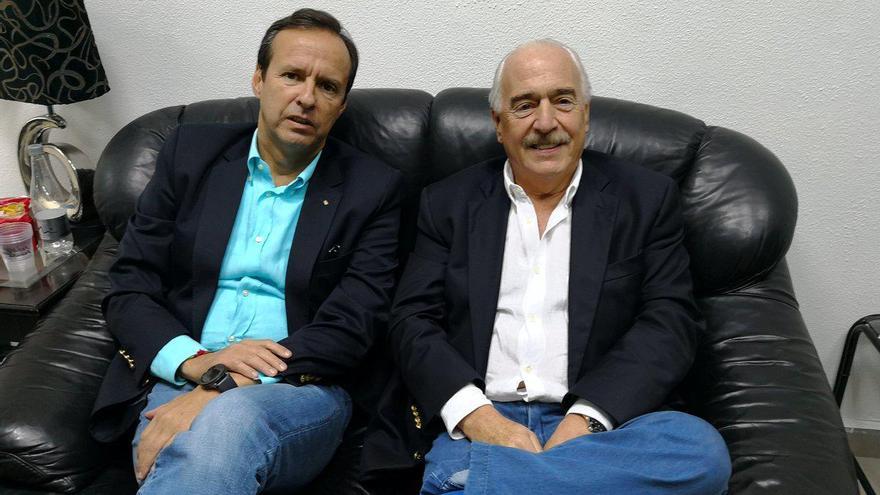
![]() 14ymedio (with information from agencies), Havana/Miami, 7 March 2018 — The Cuban government blocked the entry to the island of the former presidents of Colombia, Andrés Pastrana, and of Bolivia, Jorge Quiroga, who were sent back to Bogata on Wednesday, after they traveled to Havana to accept the prize that bears the name of the late dissident Oswaldo Payá (1952-2012).
14ymedio (with information from agencies), Havana/Miami, 7 March 2018 — The Cuban government blocked the entry to the island of the former presidents of Colombia, Andrés Pastrana, and of Bolivia, Jorge Quiroga, who were sent back to Bogata on Wednesday, after they traveled to Havana to accept the prize that bears the name of the late dissident Oswaldo Payá (1952-2012).
